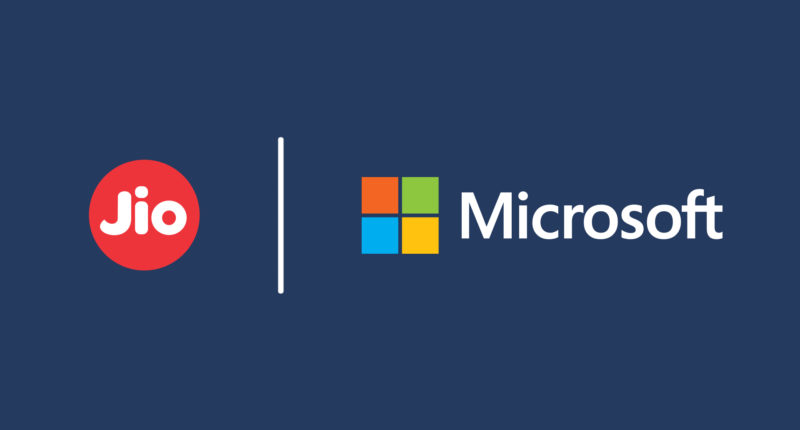Microsoft is emboldened by the financial performance Azure has delivered so far. And it is now expanding it even further. In a partnership that would ensure massive presence for Microsoft’s Azure in the world’s fastest growing internet market, the Redmond giant has announced a tie-up with India’s fastest growing telecom company, Reliance Jio.
The partnership would see Reliance Industries-owned Jio building cloud data centres and other necessary infrastructure, powered by Microsoft’s Azure. The partnership’s target is India’s ever-growing but technologically neglected small and medium enterprises.
“This is an exciting advancement that will accelerate India’s digital transformation and bring the latest technologies to millions of businesses across the country. This alliance represents a unique collaboration between our two organizations”, writes Anant Maheswari, president of Microsoft’s India business.
Once this partnership rolls-out commercially, small and medium businesses in India will have access to cloud-based productivity, collaboration and business applications including Office 365, enabling them to compete more effectively in the Indian marketplace. This collaboration will accelerate innovation to create more affordable offerings for Indian SMBs and startups, including a new range of solutions for one-stop IT capabilities and allowing front-end applications on mobile devices, desktops and other tools.
Jio on its end, will leverage the partnership to build new custom solutions on Microsoft Azure for large enterprises who have already benefited from the company’s technology platforms. Companies will also have easy and affordable access to best-in-class technologies like data analytics, AI, cognitive services, blockchain, IoT and edge computing to accelerate India’s digital transformation and enable grassroots innovation.
Jio will also leverage Microsoft’s speech and language cognitive services for its device ecosystem, providing support in 13 Indian languages, with the flexibility to add other languages. Its internal workforce will now leverage the cloud-based Microsoft 365 productivity and collaboration tools and all their non-network applications will also move to the Microsoft Azure cloud platform.





